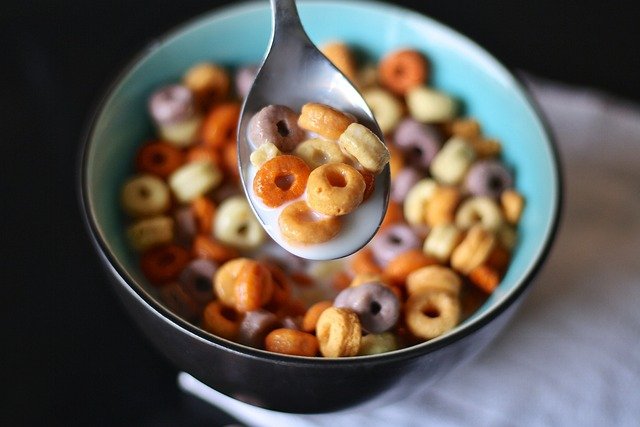If you are a vegan, it can be challenging to determine whether a particular food item is vegan or not. Cheerios are a popular breakfast cereal that has been around for many years, and many people have been wondering if they are vegan-friendly. In this article, we will delve into the question, “Are Cheerios vegan?” and provide a comprehensive guide to help you make an informed decision.
What Are Cheerios?
Cheerios are a type of breakfast cereal that was first introduced in 1941 by General Mills, an American food company. Cheerios are small, circular, and made from whole-grain oats. They are marketed as a healthy breakfast option and come in several flavors, including honey nut, chocolate, and apple cinnamon.
The Environmental Impact of Cheerios Production
The production of Cheerios, like many food products, has an environmental impact. This includes the use of natural resources such as water, energy, and land, as well as the emission of greenhouse gases and other pollutants. Some vegans may consider the environmental impact of a product when deciding whether or not to consume it.
The Ethics of Supporting Large Food Corporations
Cheerios are produced by General Mills, a large multinational food corporation. Some vegans may have ethical concerns about supporting large corporations that may engage in practices they disagree with, such as animal testing or contributing to climate change. Vegans may choose to support smaller, independent food companies instead.
The History and Evolution of Cheerios
While not directly related to the vegan status of Cheerios, learning about the history and evolution of the product can provide context and insight into its development. Cheerios was first introduced in 1941 and has since undergone numerous changes in flavor and marketing. Understanding the history of a product can also help inform our choices as consumers.
The Ingredients of Cheerios
To determine whether Cheerios are vegan or not, we need to examine their ingredients. According to the official Cheerios website, the ingredients of Cheerios are as follows:
- Whole Grain Oats
- Corn Starch
- Sugar
- Salt
- Tripotassium Phosphate
- Vitamin E (Mixed Tocopherols) Added to Preserve Freshness.
The Vegan Status of Cheerios
Based on the ingredients listed above, Cheerios are generally considered vegan-friendly. None of the ingredients are derived from animals, and there are no dairy or meat products used in their production. However, some vegans may avoid Cheerios due to the inclusion of vitamin D3 in some of their products. Vitamin D3 is derived from lanolin, which is extracted from sheep’s wool.
It’s important to note that not all Cheerios products contain vitamin D3. If you are a vegan, you should read the ingredient list carefully before purchasing Cheerios to ensure that they do not contain any animal-derived ingredients.
Cross-Contamination Issues
While Cheerios do not contain any animal-derived ingredients, there is a risk of cross-contamination during the manufacturing process. Cross-contamination occurs when a food item comes into contact with a non-vegan product, leading to the transfer of animal-derived substances.
General Mills, the company that produces Cheerios, has stated that they take measures to prevent cross-contamination. However, they also acknowledge that it is possible, albeit rare, for cross-contamination to occur. As a result, some vegans may choose to avoid Cheerios altogether.
Other Vegan Breakfast Cereal Options
If you are a vegan and want to avoid the potential risk of cross-contamination with Cheerios, there are many other vegan-friendly breakfast cereal options available. Some popular options include:
- Nature’s Path Organic Flax Plus Multibran Cereal
- Kashi Organic Strawberry Fields Cereal
- Cascadian Farm Organic Fruitful O’s Cereal
- Barbara’s Puffins Original Cereal
- Trader Joe’s Organic Brown Rice Cereal
The Vegan Status of Each Cheerios Flavor
While the original Cheerios flavor is generally considered vegan-friendly, some of the other flavors may contain non-vegan ingredients. For example, Honey Nut Cheerios contain honey, which is not vegan, while Multi-Grain Cheerios contain honey and dairy-based vitamin D3. It’s important to read the ingredient list for each Cheerios flavor to determine if it’s vegan or not.
The Controversy Surrounding Vitamin D3 in Cheerios
As mentioned earlier, some Cheerios products contain vitamin D3, which is derived from lanolin, a substance found in sheep’s wool. While vitamin D3 is commonly added to many food products, it’s controversial among vegans due to its animal-derived origin. Some vegans may choose to avoid any product that contains vitamin D3, while others may make exceptions if the product is otherwise vegan-friendly.
The Risks of Cross-Contamination in the Food Industry
Cross-contamination is a common issue in the food industry, particularly in facilities that handle both vegan and non-vegan products. While companies take measures to prevent cross-contamination, it’s not always possible to eliminate the risk entirely. As a result, some vegans may choose to avoid any product that has the potential for cross-contamination, such as Cheerios.
The Nutritional Value of Cheerios for Vegans
While Cheerios are generally considered a healthy breakfast option, some vegans may have concerns about their nutritional value. Cheerios are a good source of fiber, protein, and whole grains, but they may not provide enough vitamins and minerals for a well-rounded vegan diet. Vegans may need to supplement their diet with other nutrient-rich foods to ensure they are meeting their dietary needs.
Alternatives to Cheerios for Vegan Breakfast Cereal
If you are a vegan and want to avoid the potential risk of non-vegan ingredients or cross-contamination in Cheerios, there are many other vegan-friendly breakfast cereal options available. Some popular options include oatmeal, granola, and other whole-grain cereals that are fortified with vitamins and minerals.
Final Thoughts
In conclusion, Cheerios are generally considered vegan-friendly due to their ingredients. However, some vegans may choose to avoid Cheerios due to the potential risk of cross-contamination or the inclusion of vitamin D3 in some products. If you are a vegan, it’s essential to read the ingredient list carefully before purchasing Cheerios to ensure that they meet your dietary requirements.

